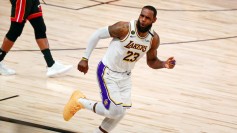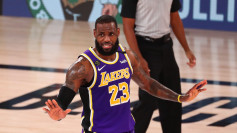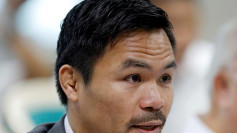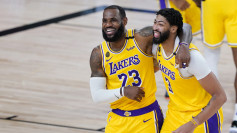The escalating fallout from soccer superstar Lionel Messi's absence in a widely anticipated match in Hong Kong has led to the cancellation of an upcoming friendly international between Argentina and Nigeria in Hangzhou, China. The move, announced by Hangzhou sports authorities, signals a deepening crisis in what has become a significant public relations debacle for Messi, who until recently enjoyed immense popularity in one of the world's pivotal sports markets.
The controversy ignited last Sunday when Messi, the marquee player for Major League Soccer club Inter Miami, did not take to the field in Hong Kong, despite being present. This decision sparked immediate backlash among fans and escalated when Messi appeared as a substitute in a subsequent match in Tokyo against Vissel Kobe, just days later. The incident has not only disappointed fans but also stirred political sensitivities and speculation, particularly given the stark contrast in Messi's participation in matches in Hong Kong and Japan.
In response to the growing discontent, the Hangzhou sports authorities released a statement, saying, "In view of the current well-known reasons, according to the competent authorities, conditions to hold the friendly match are not mature, therefore [we] have decided to cancel it." This decision underscores the broader implications of the incident, which extend beyond sports to encompass commercial and diplomatic considerations.
The Hong Kong match organizer, Tatler XFEST, in a bid to quell the discontent, announced a 50% refund for the match tickets, acknowledging the significant financial hit and the shattered aspirations of creating a landmark event. "We have invested millions of dollars and months of hard work into bringing a world-class event to Hong Kong," the company stated, expressing its disappointment over the unfulfilled promise of Messi's participation.
The backlash has not been limited to Hong Kong; it has resonated across mainland China, where the incident has fueled nationalistic fervor and calls for accountability. Social media platforms in China have been ablaze with criticism, with one video showing a blogger cutting up Messi jerseys. The sentiment is echoed by many, with one user demanding, "Messi must give Chinese fans and the Chinese people an explanation," a sentiment that received widespread support.
Amidst the controversy, Messi's team issued a statement attempting to mitigate the backlash, explaining his absence in Hong Kong was due to a groin injury. However, the location metadata of the post, indicating it was made from China's Sichuan province, far from Tokyo, only added to the skepticism and did little to quell the growing anger.
The situation has also drawn comments from political figures and state media, adding a layer of complexity to the incident. The state-affiliated Global Times suggested, without evidence, that external forces might be seeking to embarrass Hong Kong through Messi's actions, a claim that has added fuel to the speculative fire about the underlying motives of the incident.
As the controversy unfolds, the incident highlights the delicate balance international sports figures and organizations must maintain in China's politically sensitive and highly nationalistic environment. The backlash against Messi, a figure once revered across China, underscores the potential for rapid shifts in public opinion and the broader implications such shifts can have for international relations, commercial interests, and the global image of sports icons.




